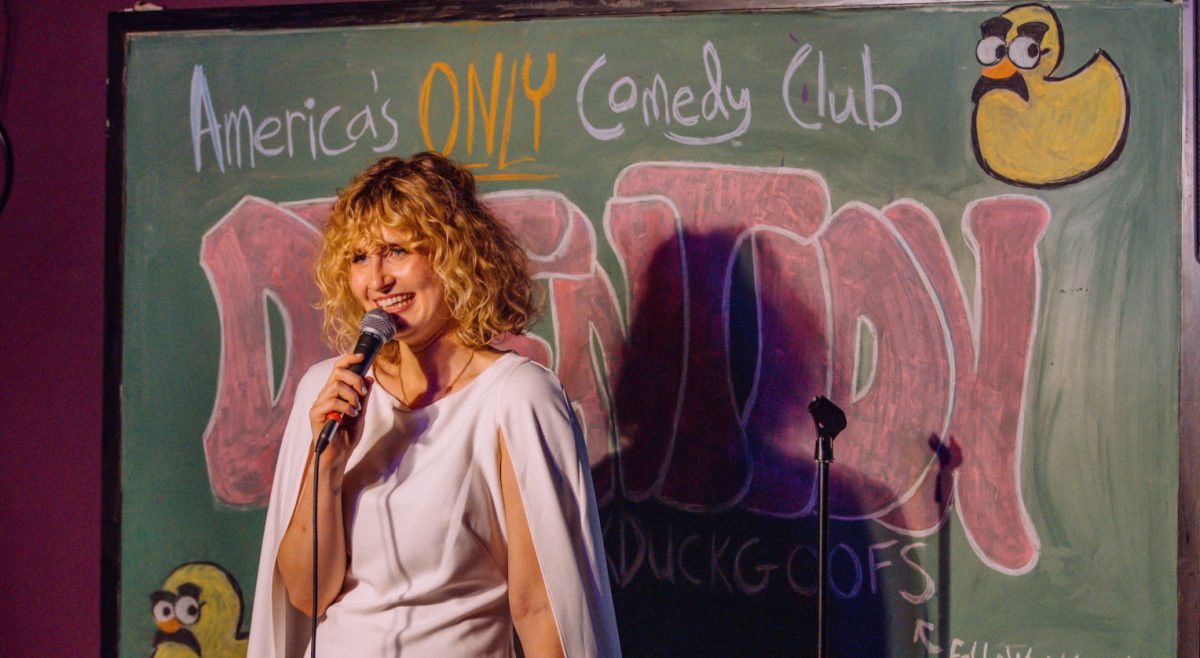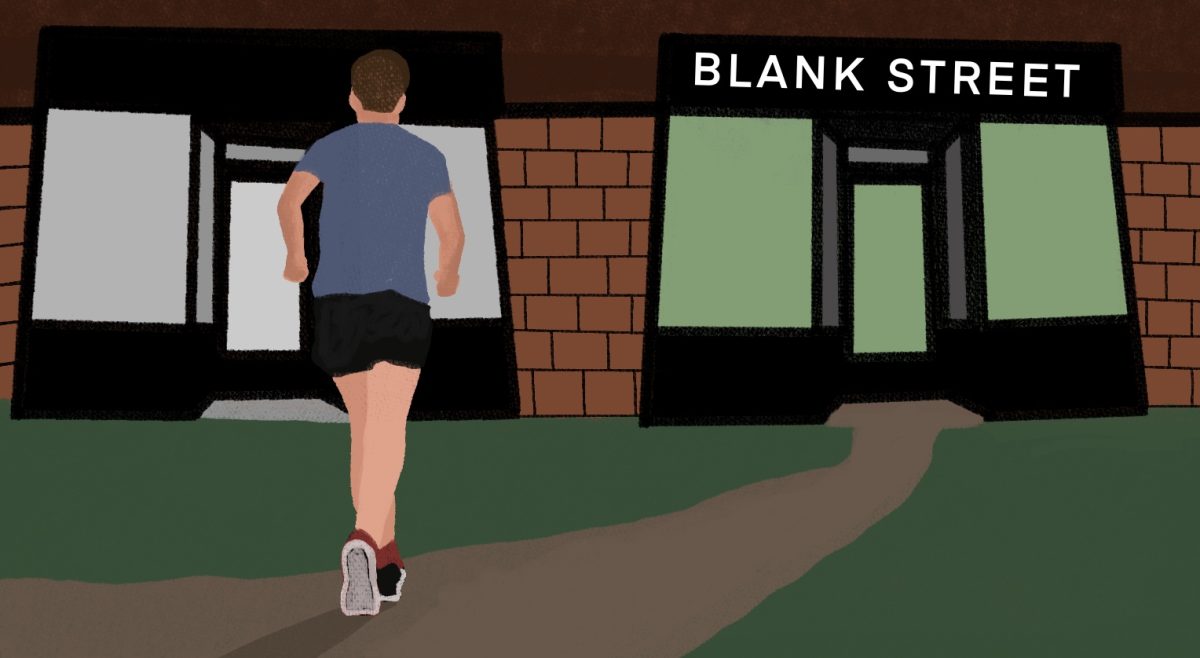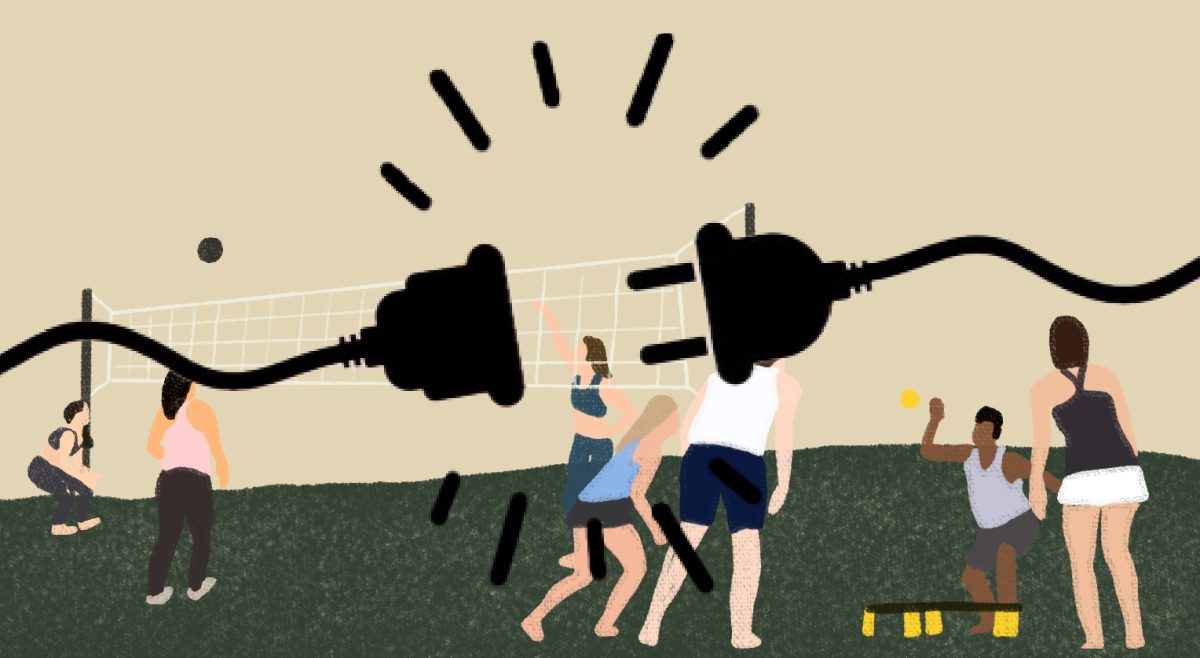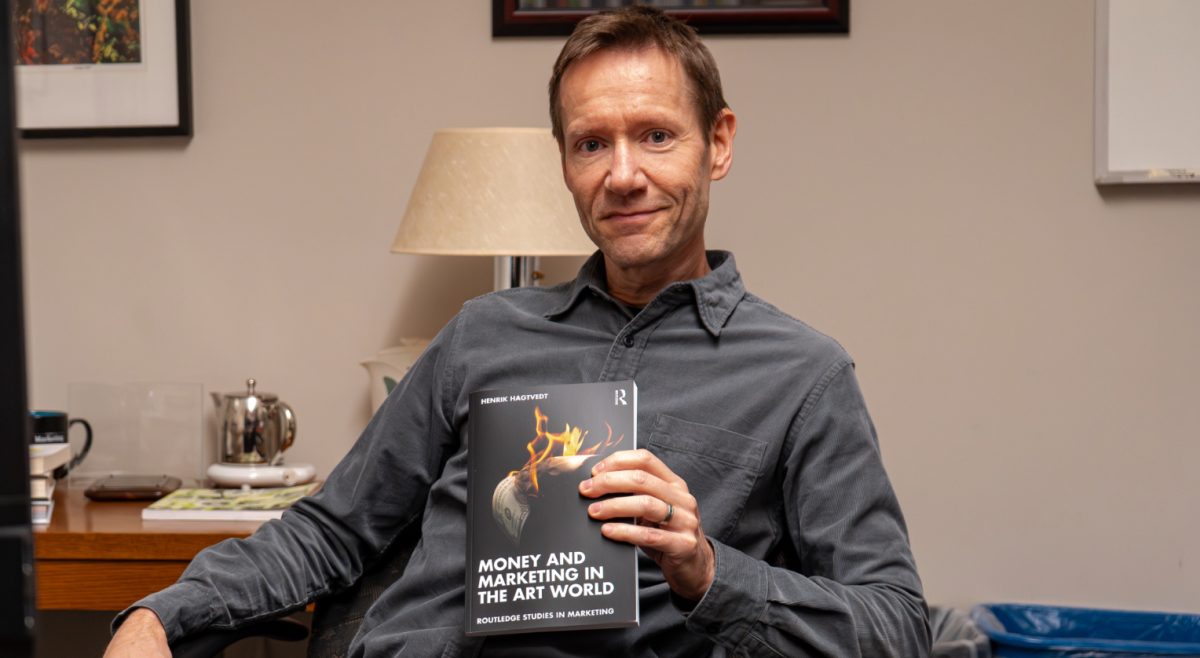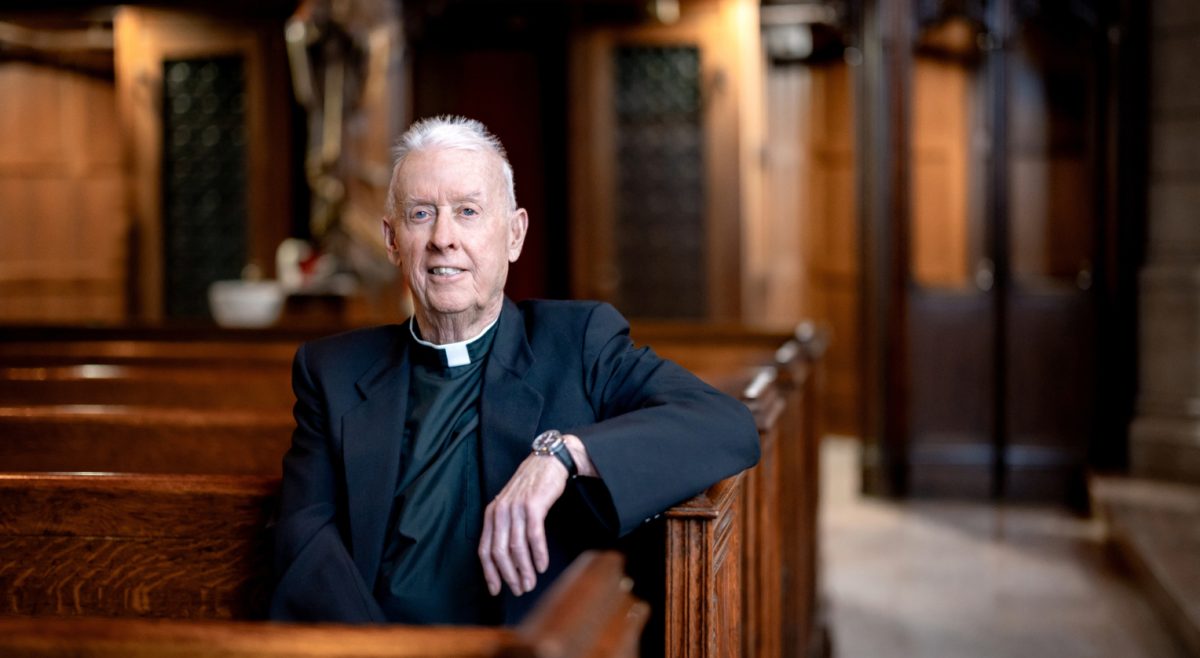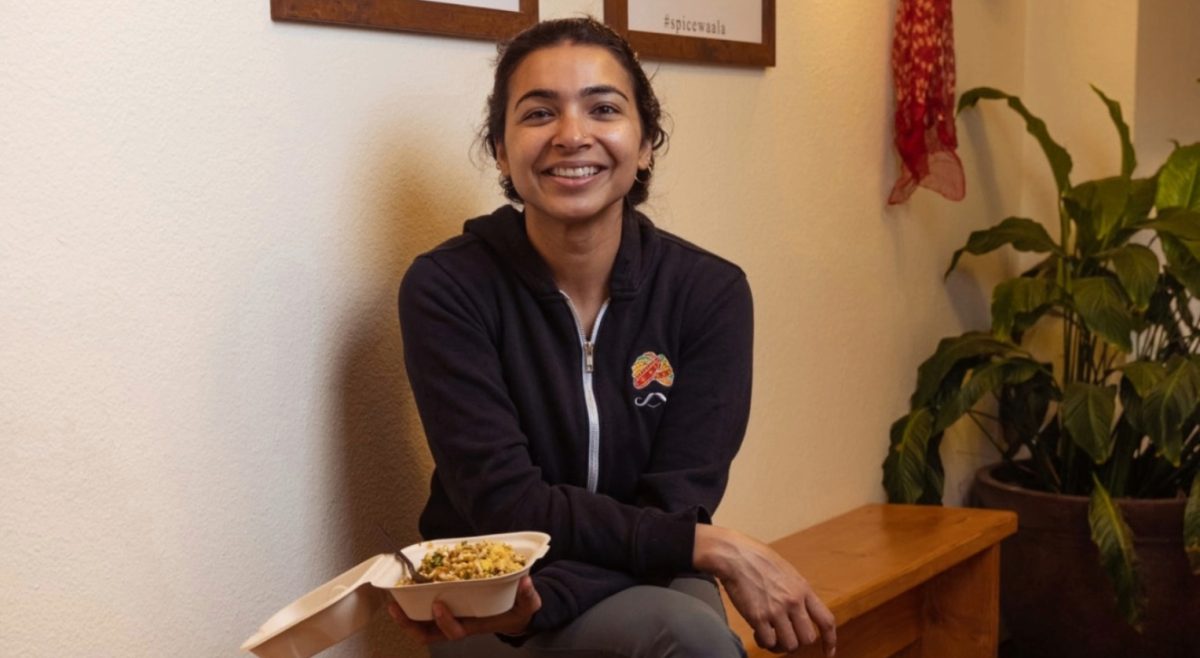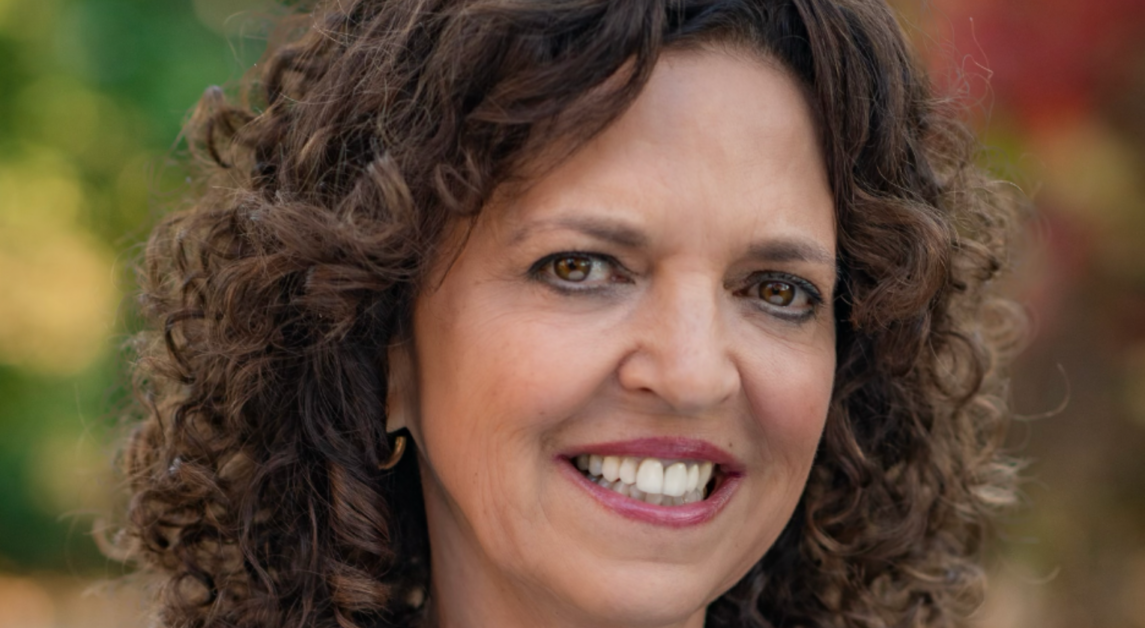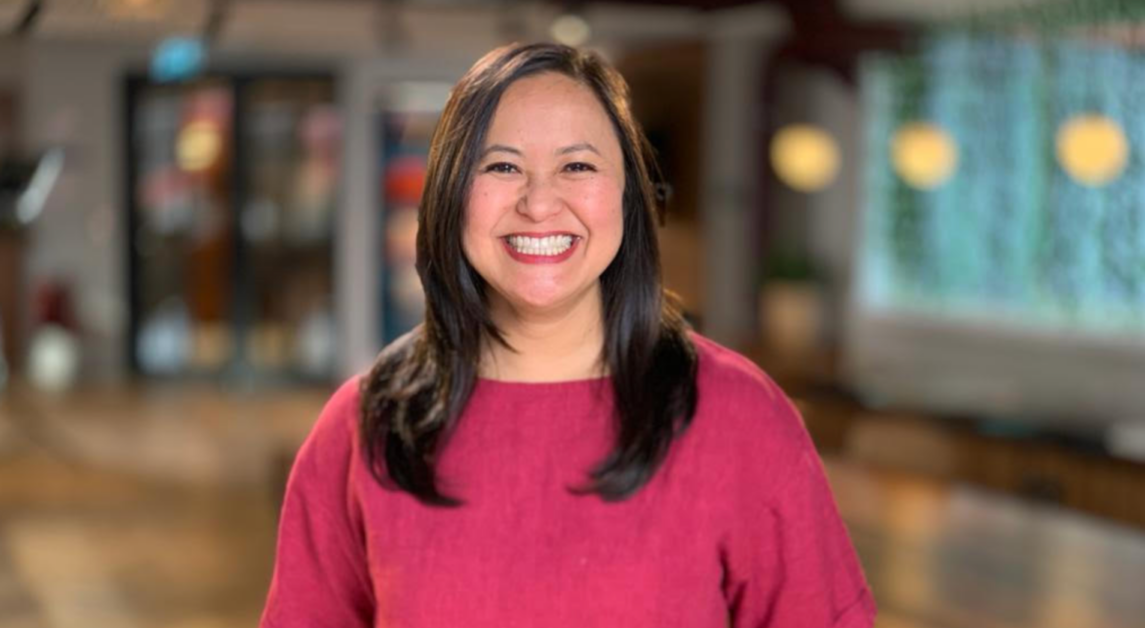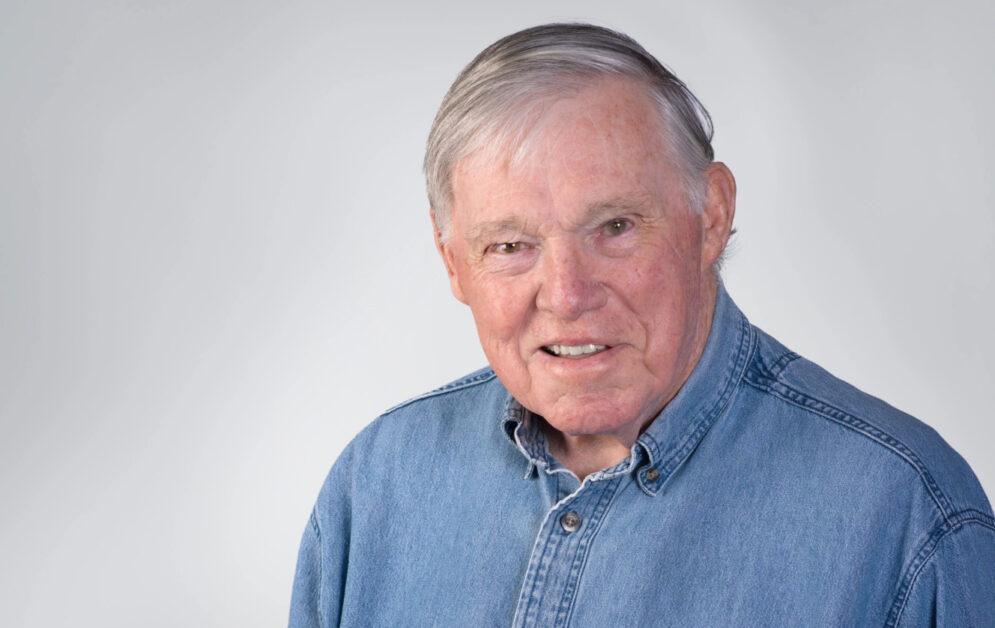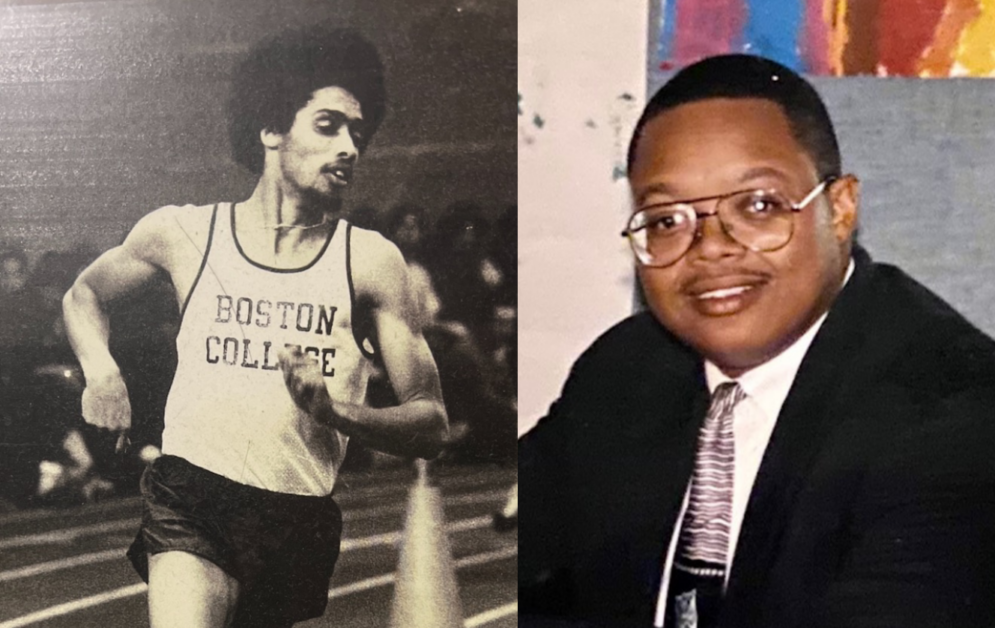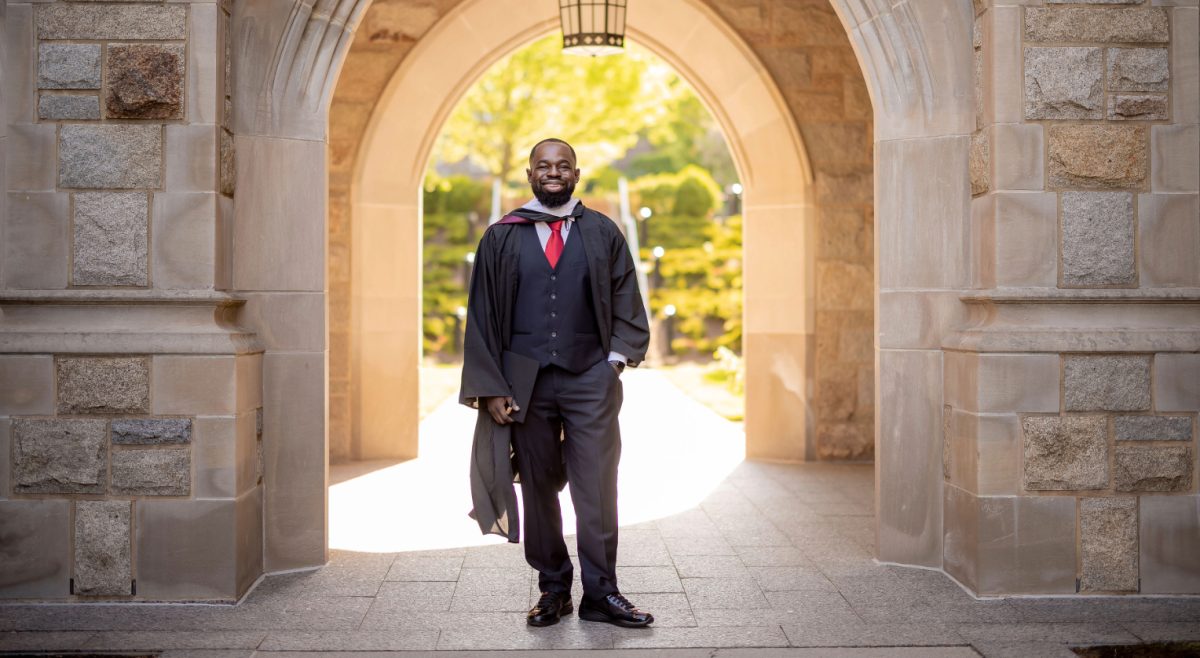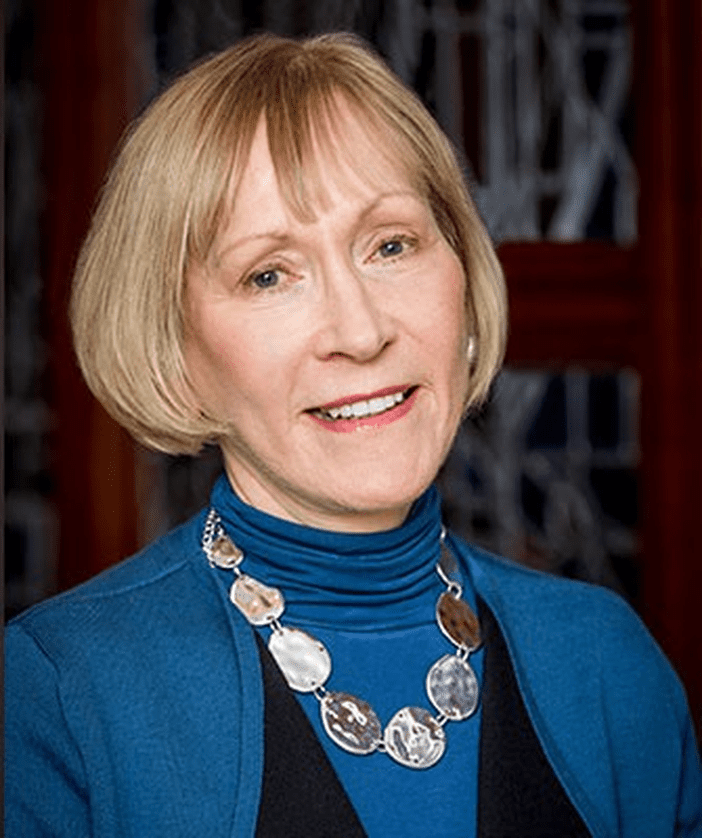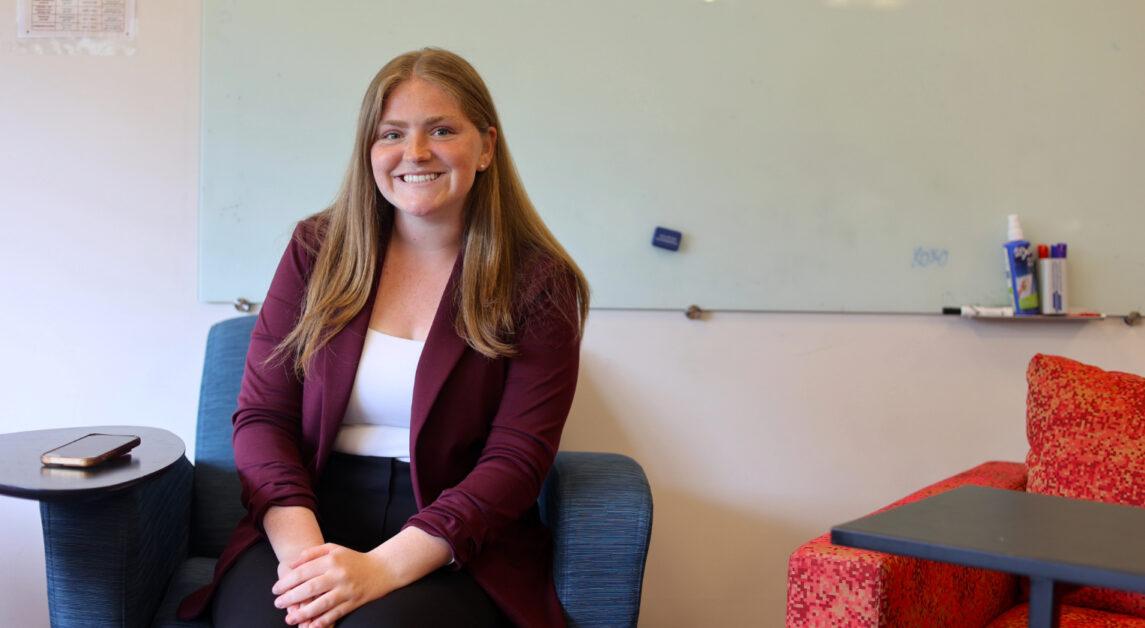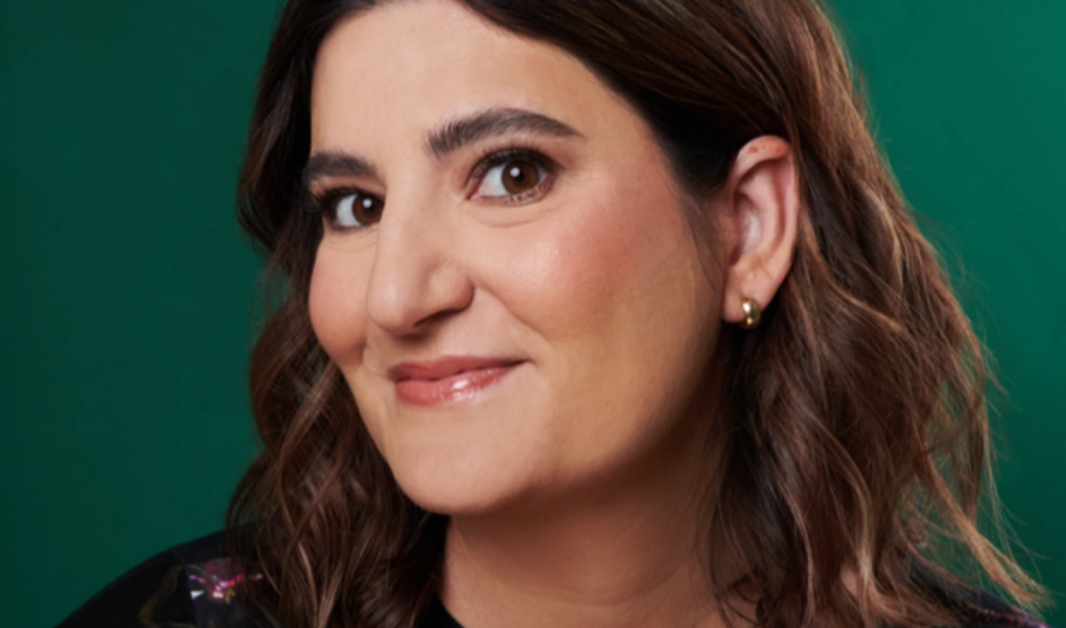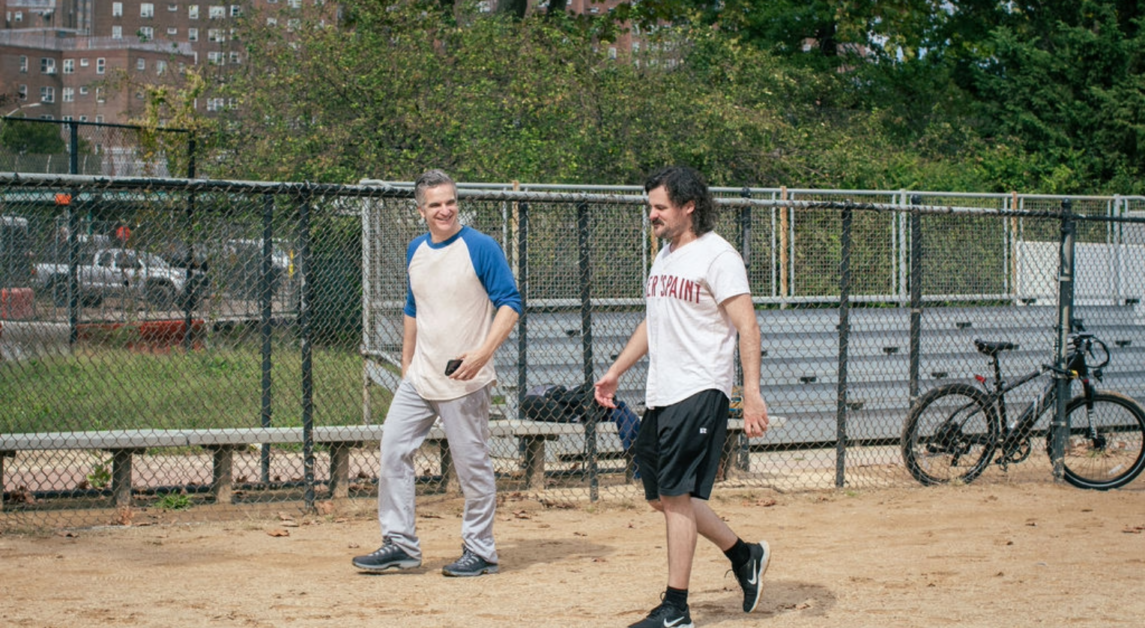When Isabel Thurston started hosting comedy nights in a community center basement as a break from her studies, she never expected it to turn into a full-time job.
“It was getting so big that the community center was like: ‘You’ve got to get out of here,’” Thurston said. “‘This is a nightclub. You’re running a nightclub.’”
Thurston, STM ’25, moved to Boston three years ago to pursue a master’s in divinity at Boston College’s Clough School of Theology and Ministry, envisioning a future as a hospital chaplain. Now, as a recent graduate, her venue—Goofs Comedy Club in Somerville, Mass.—has become her sole passion.
Alongside her husband and co-owner Ryan Howe, Thurston celebrated the club’s one-year anniversary on Oct. 4. Looking back on her commitment to the business as director of community engagement, she feels this path was made for her.
“I got so into standup, and it became such a huge part of my life,” Thurston said. “It’s so clear that I’m supposed to go this way.”
At first glance, a hospital and comedy club are different work environments, but Thurston finds that both have the power to help those in need. While it’s obvious that supporting the sick and dying serves this purpose, she found that humor can help brighten the moods of the audience.
“As a comedian, your job is to make people laugh and give them a break from all the s—t they have to deal with otherwise,” Thurston said. “We have regulars, and I can care about them and know what’s going on in their lives and know what’s bothering them.”
While creating connections in the club may have come easily to Thurston, she noted that she was tested by the challenges of running a business. She said there was a lot to learn, especially when it came to the red tape surrounding alcohol licensing in Boston.
To prepare for its opening, Thurston also had to train new hires to cultivate a warm, inviting environment for guests.
“As soon as somebody comes in the door, our staff is working to make them feel welcome,” Thurston said. “Everything everyone does contributes to the culture here, so training people on not just the job, but on the culture was something that we had to do.”
Since its opening, Thurston has gone to great lengths to curate an environment of solidarity. In fact, she claims the club wouldn’t exist if not for the many people working toward the club’s success.
“We just have groups and groups of people,” Thurston said. “A lot of them were our students … a lot of them are friends that work here, but they are really what made the space happen. There was no way we could open if this wasn’t a community space.”
The bonds in the Goofs community is a defining feature, one that Thurston said makes it distinct from the wider Boston comedy scene.
“You go to a comedy show and then don’t ever go back,” Thurston said. “But here at every show you can come back and see different comedians … it’s unique to Goofs that people come back.”
This difference between Goofs and the larger comedy scene is further emphasized through “Study Hall,” a six-week program that focuses on developing aspiring comedians’ ability to create and perform standup.
Thurston takes pride in the strong connections that are fostered during each class, as well as her role in creating more confident comics.
“I get to be a part of their development,” Thurston said, referring to her students. “That’s my favorite part.”
Anna Shur-Wilson, a graduate of “Study Hall,” agrees the venue is perfectly suited for bringing people together.
“I think the way she goes about running her class attracts people that are just kind, even if— maybe on paper—we don’t have anything in common,” Shur-Wilson said.
Shur-Wilson now hosts “Standup at the Speedway,” a monthly comedy show at The Charles River Speedway, and credited Thurston’s guidance as a factor in helping her land the role.
“She’s a very good judge of character, and she can tell whether someone is true to their works,” Shur-Wilson said. “She knew that I could handle the stress and pressure of producing a show to support me as a growing comedian.”
That sense of camaraderie benefits business as well. Shur-Wilson said people come to Goofs from all over Boston, and many “Study Hall” graduates return to perform at the club. As its alumni network expands, the venue has grown significantly.
The opportunity to create tight-knit bonds resonates with the part of Thurston that remains connected to divinity. Through Goofs, she said she found that she can easily facilitate spirituality.
“It was hard for me to go from a profession where I was engaging with my faith and other people’s spiritual lives regularly to this job, but then I realized it’s kind of narrow-minded to assume that this isn’t a spiritual experience for people,” Thurston said.
Thurston believes that sanctity can come in many different forms and expressions—even laughter.
“Joy is just as important to someone’s spirituality as reflection and being solemn,” Thurston said.
Whether hosting, performing, or teaching, Thurston understands the ability she has to influence those around her.
There is a guiding philosophy that exists behind Goofs, one that is also rooted in Thurston’s theological background. She outlined her guidelines on what constitutes an ethical joke through the idea of “punching” up, in, or down.
“Puching up is punching at somebody with more power than you, like politicians, your boss, or your parents,” Thurston said. “Punching up is always okay. Punching in is punching at someone like you. I make a ton of fun of Trader Joe’s employees, because I look like a Trader Joe’s employee. I mean, we look the same.”
Punching down is where it gets tricky. Thurston, and Goofs as a whole, are less supportive of jokes that target an individual or group that have less power, specifically about traits they are unable to change.
“It’s just lazy, and it’s also cruel,” Thurston said. “As a comedian, you’re smarter than that. You’re better than that.”
Thurston claims that this outlook creates similarities among the types of comics that return to the club: caring, intentional individuals.
As Thurston put it, “we only work with sweethearts.”
Still, Goofs does not censor performances, and clean comedy is not expected.
The distinctive character of Goofs owes in part to the Jesuit values instilled during Thurston’s time at BC. She said the core of the Jesuit faith aligns closely with the aims of her venue.
“If I hadn’t gone to a Jesuit school, I don’t think I would have realized that what we’re doing here is serving people that have a real need to feel something other than fear and despair,” Thurston said.
Rev. Kieran Halloran, S.J., BCSTM ’25, who studied in the same cohort as Thurston, emphasized how deeply Jesuit ideals shape her venue.
Halloran, who visited Goofs soon after its opening and multiple times since, said he was immediately impressed with the open religious discussion he encountered with both audience and staff.
“The Boston comedy scene normally wouldn’t really talk about faith much and to the extent that they do talk about religion, it’s from a very sort of deprecating or sarcastic point of view,” Halloran said. “By sharing her love for the faith and love for the church, they are creating a space in which people are more open to appreciate what there is in the faith.”
Halloran was reminded of a tenet of Ignatian spirituality when it came to understanding Goofs.
“I hate Jesuit bumper stickers, but it’s a good one—the aspect of finding God in all things,” Halloran said.
Week after week, Goofs brings audiences together through laughter. For Thurston, what once began as a small, makeshift comedy night has become a sanctuary for audiences and comics alike.
“People leave here, and they’ll come up to me, and they’ll be like, ‘I needed this,’” Thurston said. “As a person of faith, that’s what I want. I want people to feel like they’re part of something, to feel cared for, to feel like they can have a break from how hard life is, to have a moment of rest, even when that rest looks like this.”

